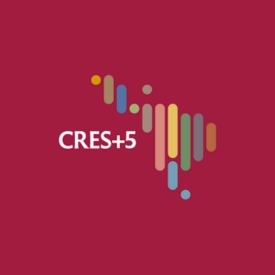
CAFA was present at the CRES+5 Conference, which was held from March 13-15, 2024, in Brasilia, Brazil, to assess progress and new challenges five years after the Third Regional Conference on Higher Education, held in Cordoba, Argentina, in June 2018.
The conference was promoted by the Ministry of Education of Brazil, the country’s Coordination for the Improvement of Higher Education Personnel (CAPES) and the UNESCO International Institute for Higher Education in Latin America and the Caribbean (IESALC). Around two thousand people attended, with a strong presence of students, teachers, rectors, directors, research centres, unions, and non-governmental organizations from across Latin America and the Caribbean. The problematic of academic freedom and university autonomy was highlighted throughout, pointing out how attacks and restrictions to these are affecting the regional democratic landscape more broadly.
The final declaration of the CRES+5 defends higher education as a universal human right, and a social public good that states must guarantee. It highlights that “it is necessary to defend the democratic rule of law, higher education institutions, a diversified education system and an open, plural, inclusive and humanistic science, and to reaffirm the public meaning of knowledge”. The document also points out that the negationist and anti-scientific discourses of political leaders who assume dogmatic and religious positions represent a danger to a more inclusive and egalitarian educational model. “The advance of dogma is the death of the possibility of deliberation, and without deliberation there is no democracy”.
Furthermore, the Conference’s closing lecture, taken forward by Professor José Geraldo de Souza Júnior, former chancellor of the University of Brasilia, addressed the role of the university in society. He argued that preserving academic freedom and university autonomy is essential, as they have come under serious threat in the region, leading the Inter-American Commission on Human Rights to establish The Principles on Academic Freedom and University Autonomy, which must be perused in practice.
Finally, it is worth noting that one of the 12 core themes of the CRES+5, with a dedicated working group, was on University Autonomy. This subgroup acknowledged that while autonomy is a principle deeply rooted in the history of Higher Education Institutions in the region, it has suffered from threats stemming from the privatization and commodification of education, neoliberal management models that limit budget allocation to universities and from political interventions in elections of administrative bodies as well as attacks on the legitimacy of scientific knowledge.
